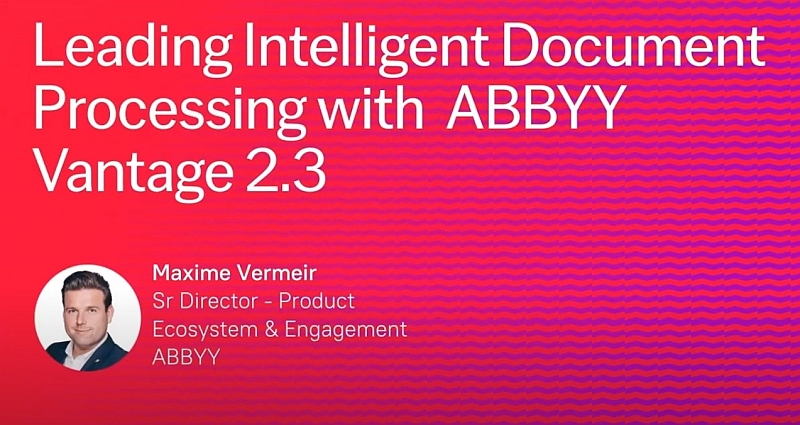
Cookiebot-Enabled: Optimizing Your Website with Advanced Tracking Technology

Cookiebot-Enabled: Optimizing Your Website with Advanced Tracking Technology
Back to The Intelligent Enterprise
The Second Tax Revolution—How Trustworthy AI Transforms Online Tax Filing
by Chip VonBurg, Chief Customer Officer
In the context of trusting artificial intelligence in the tax process, trustworthiness can be evaluated in terms of customer outcomes, business outcomes, and outcomes of other stakeholders such as citizens.
Share
Advancements in technology are always met with initial uncertainty. From the inception of the internet to the first smartphone, innovation can introduce profound benefits at the expense of the status quo.
Filing taxes is no exception: many people were once skeptical of online filing services, but the convenience and accessibility offered by these platforms has brought undeniable value to customers. The mountains of physical forms and hours spent flipping through pages from 15 years ago are no more, making online tax services a clear choice for 97 percent of filers .
Now tax filing is experiencing another digital transformation, involving an even more controversial technology: artificial intelligence (AI).
The rapid evolution of AI has been massively disruptive, even prompting some tech leaders to call for a pause on its development . Nonetheless, AI shows no signs of stopping. Trusting AI with personal finances might be an uncomfortable thought for some, but several tax preparation companies have integrated artificial intelligence into their software to drastically expedite the filing process.
As AI continues to become more intertwined with business operations and consumers’ personal information, it is necessary to consider its trustworthiness from different perspectives. In the context of trusting artificial intelligence in the tax process, trustworthiness can be evaluated in terms of customer outcomes, business outcomes, and outcomes of other stakeholders such as citizens.
Enhancing customer outcomes
Filing taxes can be a lengthy and complicated process, requiring a multitude of documents and constant verification of information. Individuals with complicated returns can easily be overwhelmed by the volume of information that is required or become discouraged from maximizing their return.
By implementing AI in customer-facing tax software, companies can reduce required manual entry and make the process more filer-friendly. This can reduce errors and improve tax outcomes, leading to better experiences for customers and a healthier brand reputation for companies. In some cases, customers have been able to file taxes in about 11 minutes on average.
AI can be trusted to fill in gaps in customers’ understanding of the tax process. Those who aren’t familiar with the ins-and-outs of every unique form, deduction, or credit can lean on artificial intelligence to pull key information and identify opportunities . While customers should still have to follow prompts and consider the validity of their claims and data, AI has a more reliable store of information that can steer them in the right direction and provide a greater understanding than if they were left to their own devices.
From the customer’s perspective, AI-assisted filing eliminates the monotonous task of manual entry and provides the tools needed to maximize their return without assuming total control. By leaving the wheel in the filer’s hands, AI offers value while avoiding added risk.
Delivering on Artificial Intelligence’s Potential
eBook
Enhancing business outcomes
Some tax preparation companies use legacy systems that aren’t conducive to easy customization, restricting their agility in adapting to the wide variety of forms and special circumstances that arise during tax season. This means bottle necked back-end processes, which will delay customers’ returns and damage brand reputation.
By deploying AI-driven solutions like intelligent document processing (IDP), tax companies can tailor their platform to specific document processing needs. Low-code / no-code interfaces and pre-trained document skills empower citizen developers to effectively use AI to keep tax filing processes running smoothly with impressive straight-through document processing rates, so the customer sees their return as quickly as possible.
One leading tax preparation company found that ABBYY Vantage extracted tier-one (highest priority) data with 100 percent accuracy right out of the box, and it trained Vantage Document Skills to achieve 90+ percent, drastically reducing the need for human intervention. The IDP solution was implemented in just a few months before being used successfully for the immediate tax season—a testament to the scalability and ease of deployment enabled by AI-driven tools.
By putting more control in the hands of citizen developers to quickly deliver IDP solutions for their highest value use cases, artificial intelligence provides organizations with both immediate and long-term business value.
Enhancing public outcomes
According to the White House AI Bill of Rights , artificial intelligence must work for the benefit of the public to be considered responsible and trustworthy. By using AI-driven software to inform government entities like Congress, the IRS, and courts of discrepancies within proposed tax law, artificial intelligence could help close the $500 billion gap in tax revenue that is lost to legal loopholes.
This is an advanced application of artificial intelligence that currently exists only in concept; however, increased investments in the development of trustworthy AI would make desirable public outcomes achievable.
If pursued correctly, trusting AI to enhance tax filing will not only enhance outcomes for businesses and individuals, but also a much broader constituency of citizens. Provided the proper precautions are in place to ensure trustworthy and ethical use, the tax process is among the ripest of opportunities for automation and artificial intelligence.

Chip VonBurg
Chief Customer Officer at ABBYY
Chip VonBurg is Chief Customer Officer (CCO) at ABBYY. He has more than 20 years-experience leading impactful customer-success initiatives that enable organizations to achieve their intelligent automation goals faster. As CCO, VonBurg leads a team responsible for ensuring customers worldwide leverage ABBYY’s intelligent document processing (IDP) and process intelligence solutions to transform their data into more intelligent actionable outcomes.
Chip’s deep knowledge of AI, machine learning and the systems driving organizations coupled with an understanding of customers’ business drivers give him strategic insights to navigate customers successfully through their digital transformation journeys. Since 2012, he has held several customer-engaging roles at ABBYY and most recently served as Vice President of Customer Success and Director of Professional Services. He has a B.S. in Computer Science from Coleman College and resides in San Diego, California.
Connect with Chip on LinkedIn .
Additional Insights:
1 / 3
 Are Large Language Models (LLMs) the Future? Read more
Are Large Language Models (LLMs) the Future? Read more  The Gap Is Closing Between AI Innovation and Time-to-Value Read more
The Gap Is Closing Between AI Innovation and Time-to-Value Read more  How Banks Are Meeting Compliance Regulations and Fighting Fraud with AI and Machine Learning Read more
How Banks Are Meeting Compliance Regulations and Fighting Fraud with AI and Machine Learning Read more  How Process Mining Improves Business Processes and Prevents Cyber Threats Read more
How Process Mining Improves Business Processes and Prevents Cyber Threats Read more  Analysis Reveals Top Use Cases for IDP in US, Europe, and Asia-Pacific Read more
Analysis Reveals Top Use Cases for IDP in US, Europe, and Asia-Pacific Read more  Customer Point of View: Process Mining Reveals $6 Million in Savings Read more
Customer Point of View: Process Mining Reveals $6 Million in Savings Read more  Is Generative AI Trustworthy? Read more
Is Generative AI Trustworthy? Read more  How AI Can Help Government Agencies Win at Total Experience (TX) Read more
How AI Can Help Government Agencies Win at Total Experience (TX) Read more  Creating an Intelligent Automation Symphony Read more
Creating an Intelligent Automation Symphony Read more  Document AI Creating a Safer World Read more
Document AI Creating a Safer World Read more  Customer Point of View: Approach Automation Step by Step Read more
Customer Point of View: Approach Automation Step by Step Read more  Top Reasons Why Customers Abandon Your Onboarding Processes…and How to Fix Them Read more
Top Reasons Why Customers Abandon Your Onboarding Processes…and How to Fix Them Read more
Get updated on the latest insights and perspectives for business & technology leaders
First name*
Last name
E-mail*
Сountry*
СountryAfghanistanAland IslandsAlbaniaAlgeriaAmerican SamoaAndorraAngolaAnguillaAntarcticaAntigua and BarbudaArgentinaArmeniaArubaAustraliaAustriaAzerbaijanBahamasBahrainBangladeshBarbadosBelgiumBelizeBeninBermudaBhutanBoliviaBonaire, Sint Eustatius and SabaBosnia and HerzegovinaBotswanaBouvet IslandBrazilBritish Indian Ocean TerritoryBritish Virgin IslandsBrunei DarussalamBulgariaBurkina FasoBurundiCambodiaCameroonCanadaCape VerdeCayman IslandsCentral African RepublicChadChileChinaChristmas IslandCocos (Keeling) IslandsColombiaComorosCongo (Brazzaville)Congo, (Kinshasa)Cook IslandsCosta RicaCroatiaCuraçaoCyprusCzech RepublicCôte d’IvoireDenmarkDjiboutiDominicaDominican RepublicEcuadorEgyptEl SalvadorEquatorial GuineaEritreaEstoniaEthiopiaFalkland Islands (Malvinas)Faroe IslandsFijiFinlandFranceFrench GuianaFrench PolynesiaFrench Southern TerritoriesGabonGambiaGeorgiaGermanyGhanaGibraltarGreeceGreenlandGrenadaGuadeloupeGuamGuatemalaGuernseyGuineaGuinea-BissauGuyanaHaitiHeard and Mcdonald IslandsHoly See (Vatican City State)HondurasHong Kong, SAR ChinaHungaryIcelandIndiaIndonesiaIraqIrelandIsle of ManIsraelITJamaicaJapanJerseyJordanKazakhstanKenyaKiribatiKorea (South)KuwaitKyrgyzstanLao PDRLatviaLebanonLesothoLiberiaLibyaLiechtensteinLithuaniaLuxembourgMacao, SAR ChinaMacedonia, Republic ofMadagascarMalawiMalaysiaMaldivesMaliMaltaMarshall IslandsMartiniqueMauritaniaMauritiusMayotteMexicoMicronesia, Federated States ofMoldovaMonacoMongoliaMontenegroMontserratMoroccoMozambiqueMyanmarNamibiaNauruNepalNetherlandsNetherlands AntillesNew CaledoniaNew ZealandNicaraguaNigerNigeriaNiueNorfolk IslandNorthern Mariana IslandsNorwayOmanPakistanPalauPalestinian TerritoryPanamaPapua New GuineaParaguayPeruPhilippinesPitcairnPolandPortugalPuerto RicoQatarRomaniaRwandaRéunionSaint HelenaSaint Kitts and NevisSaint LuciaSaint Pierre and MiquelonSaint Vincent and GrenadinesSaint-BarthélemySaint-Martin (French part)SamoaSan MarinoSao Tome and PrincipeSaudi ArabiaSenegalSerbiaSeychellesSierra LeoneSingaporeSint Maarten (Dutch part)SlovakiaSloveniaSolomon IslandsSouth AfricaSouth Georgia and the South Sandwich IslandsSouth SudanSpainSri LankaSurinameSvalbard and Jan Mayen IslandsSwazilandSwedenSwitzerlandTaiwan, Republic of ChinaTajikistanTanzania, United Republic ofThailandTimor-LesteTogoTokelauTongaTrinidad and TobagoTunisiaTurkeyTurks and Caicos IslandsTuvaluUgandaUkraineUnited Arab EmiratesUnited KingdomUnited States of AmericaUruguayUS Minor Outlying IslandsUzbekistanVanuatuVenezuela (Bolivarian Republic)Viet NamVirgin Islands, USWallis and Futuna IslandsWestern SaharaZambiaZimbabwe
I have read and agree with the Privacy policy and the Cookie policy .*
I agree to receive email updates from ABBYY Solutions Ltd. such as news related to ABBYY Solutions Ltd. products and technologies, invitations to events and webinars, and information about whitepapers and content related to ABBYY Solutions Ltd. products and services.
I am aware that my consent could be revoked at any time by clicking the unsubscribe link inside any email received from ABBYY Solutions Ltd. or via ABBYY Data Subject Access Rights Form .
Referrer
Query string
GA Client ID
UTM Campaign Name
UTM Source
UTM Medium
UTM Content
ITM Source
Page URL
Captcha Score
Connect with us
- Title: Cookiebot-Enabled: Optimizing Your Website with Advanced Tracking Technology
- Author: Robert
- Created at : 2024-08-21 17:17:02
- Updated at : 2024-08-22 17:17:02
- Link: https://techtrends.techidaily.com/cookiebot-enabled-optimizing-your-website-with-advanced-tracking-technology/
- License: This work is licensed under CC BY-NC-SA 4.0.




